Rx For Success: Bringing Ross to the Patient Bedside

In 2024, the largest class of MD/MBA dual-degree students recorded so far graduated from the Ross School of Business.
Fifteen dual-degree MD and MBA students — a larger class than ever before — have taken the next step in their career journeys. These hardworking students learned their residency destinations on March 15, the University of Michigan Medical School’s Match Day, and graduated with their MDs and MBAs on May 4.
The MD/MBA program is one of 22 established dual-degree programs at Michigan Ross that enable students to gain a comprehensive education in more than one field of study. The five-year MD/MBA program is popular for the business and management edge it gives medical students who may be interested in eventually opening their own practice or innovating in the business side of the medical field.
To learn more about some of this year’s impressive MD/MBA graduates, we asked three students from the Class of 2024 to tell us more about why they chose Ross, how a dual degree has benefited them, and more.
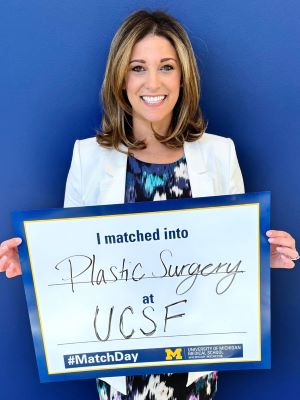 Michelle Benedict
Michelle Benedict
Hometown
San Jose, California
Where did you match for residency?
University of California San Francisco
What are your post-graduation career goals?
To pursue a plastic and reconstructive surgery residency.
Why did you choose Ross for your MD/MBA?
As a student at the University of Michigan Medical School, I am so lucky to have so many other incredible graduate programs right here in Ann Arbor. While I was exposed to out-of-state and out-of-country options, I was impressed with the healthcare innovation curriculum unique to Ross, which I felt would enhance my future medical training. This curriculum includes courses like healthcare strategy, commercialization of biomedicine, and generative artificial intelligence, to name a few.
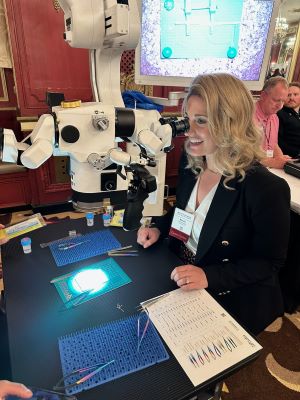 How does a Ross MBA help/empower you in your career in healthcare?
How does a Ross MBA help/empower you in your career in healthcare?
I have already won several multi-thousand-dollar grants based on core concepts I learned in class. Additionally, the broader healthcare landscape and network of experts I have been exposed to have deeply informed my vision on how to navigate one of my biggest dreams: making “invisible patients” seen by using advanced technology in clinical scenarios to lower patient barriers and burden to receiving surgical care, both domestically and globally.
How have you grown since starting as a Ross student?
I have grown in many ways, but the three biggest catalysts for expanding my mind have been an innovative curriculum, world-renowned expert professors, and the diverse, inspiring, and inclusive student body of peers who openly share and collaborate freely.
What is the biggest benefit or impact of pursuing an MD/MBA?
As an MD, I am driven to figure out how best to help each individual patient. But I came to realize that sometimes, helping patients the most meant making changes at the community and system level to affect a broader change for even more people. These aren’t skills taught in medical school but are certainly tackled in business school at Michigan Ross.
What advice would you give someone interested in pursuing an MD/MBA at Ross?
I think it helps to have a vision for your future career in advance so that you can tailor the MBA experience to support those necessary skills and experiences in a very focused way. However, many people come into Ross not exactly sure what they want to do next but are eager to explore all the options before them to help better define that big “next dream.” I think that can also be a great strategy. It’s helpful to be exposed to peers in various phases of self-discovery and give yourself space for that necessary growth process to unfold.
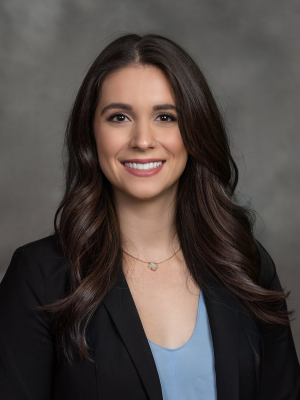 Christina Shabet
Christina Shabet
Hometown
Troy, Michigan
Where did you match for residency?
University of Michigan Health System
What are your post-graduation career goals?
My goal is to start a plastic surgery residency, do an aesthetic fellowship, and eventually open my own practice.
Why did you choose Ross for your MD/MBA?
I chose Ross because I wanted a well-rounded business education. I studied industrial and operations engineering during undergrad, which introduced me to healthcare operations. With business increasingly becoming a big part of the healthcare industry and impacting my future job and workplace, it was important for me to make sure I had a formal business education so I could best understand how business and healthcare work together and hopefully make a positive impact in both fields.
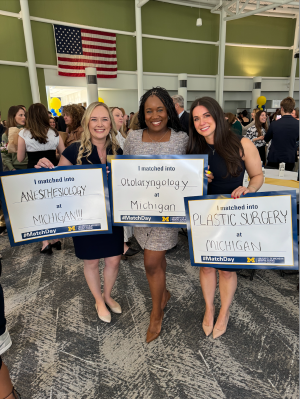 How does a Ross MBA help/empower you in your career in healthcare?
How does a Ross MBA help/empower you in your career in healthcare?
The MBA at Ross has given me the tools and connections to understand business and how it relates to and affects the care I will be able to provide to patients. With a desire to open my own practice, it is important to understand marketing, finance, strategy, operations, and other key business-related topics that will allow me to run a positive, successful practice that positively impacts the lives of patients.
How have you grown since starting as a Ross student?
Ross has greatly improved my interpersonal and presentation skills. It has also provided me with the framework and concepts for productively leading teams and being a good teammate. I have met other students from a variety of backgrounds who have expanded my understanding of the world.
What is the biggest benefit or impact of pursuing an MD/MBA?
Increasing your perspective outside of medicine. There are several different ways an MD degree can be utilized outside of the hospital, in consulting, on multidisciplinary teams, or in tech/healthcare startups. Additionally, starting my own practice will be challenging, but I hope that the knowledge and skills I have obtained from my MBA will help to make it a smoother transition after residency.
What advice would you give someone interested in pursuing an MD/MBA at Ross?
It is well worth taking dedicated time away from medical school to study business. Our courses and schedules in medical school are so demanding that there is little time to study other topics outside of medicine, and pursuing an MBA allowed me to focus on learning about business, which was important to me.
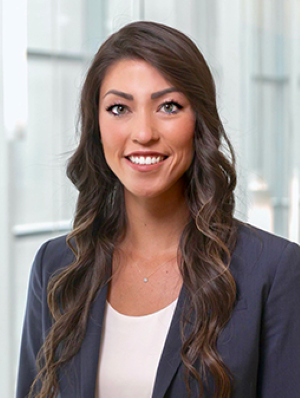 Serena Bidwell
Serena Bidwell
Hometown
Dexter, Michigan
Where did you match for residency?
Stanford Health Care for general surgery
What are your post-graduation career goals?
After graduation, I will start my general surgery residency at Stanford Health Care. I will likely pursue fellowship training after residency, perhaps in pediatric surgery or surgical oncology. I hope to use my MBA training to one day have a leadership role within academic surgery and to build more robust, equitable, and efficient hospital systems that prioritize patients.
Why did you choose Ross for your MD/MBA?
I chose Ross because of the unique combination of opportunities, including the Multidisciplinary Action Project, the healthcare management concentration, and the nonprofit fellowship program. I wanted ample opportunities inside and outside the classroom to gain new knowledge and apply these skills. During MAP, I worked with a healthcare nonprofit organization based in Rwanda, which aligned with many of my passions. The healthcare management concentration allowed me to learn alongside peers interested and experienced in a multitude of other healthcare sectors. Additionally, the focus on building leadership skills and cultivating positive organizations was extremely appealing to me as I knew I would be able to apply these principles directly to my surgical training.
How does a Ross MBA help/empower you in your career in healthcare?
A Ross MBA will empower me to become a more thoughtful leader. I’m especially interested in the changing landscape of healthcare, including larger hospital systems through mergers and acquisitions, and the MBA core coursework gave me the foundation to make meaningful contributions to these systems-level discussions.
Additionally, courses such as operations, finance, and strategy have equipped me with the skills to tackle the challenges of our complex healthcare system, while healthcare electives provided perspective and expertise to understand the nuances of working within this field. Through the MBA, I have gained a much broader understanding of the many stakeholders and viewpoints that impact our national health policy. I feel much more prepared to strategically approach and solve the challenges I will face in my career as a surgeon.
How have you grown since starting as a Ross student?
Since starting as a Ross student, I’ve grown in countless ways. I’ve become much more comfortable entering spaces of unfamiliarity and more appreciative of different backgrounds and experiences in the workplace. I’ve also become more confident when asking questions or offering my own perspectives to a discussion. Ross helped refine my career interests and showed me how to more clearly integrate business into my future as a surgeon. Ross taught me the value and strength of a community and the power of intentionally building the culture you want to experience in the workplace.
What is the biggest benefit or impact of pursuing an MD/MBA?
The biggest benefit of pursuing an MD/MBA is learning from such diverse perspectives and growing in such unique ways. Medical school and business school not only cover vastly different material, but they also approach learning through different modalities. The training in leadership development and organizational change is really unparalleled at Michigan Ross, but medical school has provided me with the clinical knowledge to care for patients.
I’m looking forward to using both degrees in the future and engaging in conversations that impact the entire healthcare system. Pursuing this dual degree has already opened countless doors, and I’m sure it will only continue to do so as I’m now equipped with the skillset to meaningfully contribute both clinically and strategically.
What advice would you give someone interested in pursuing an MD/MBA at Ross?
I would tell somebody interested in an MD/MBA at Ross to go all in for it and make the most of the experience by seeking out all the opportunities that align with their passions. There are infinite organizations and ways to be involved in both graduate programs, and it’s important that students use this precious time to invest in themselves and explore all areas of interest.







